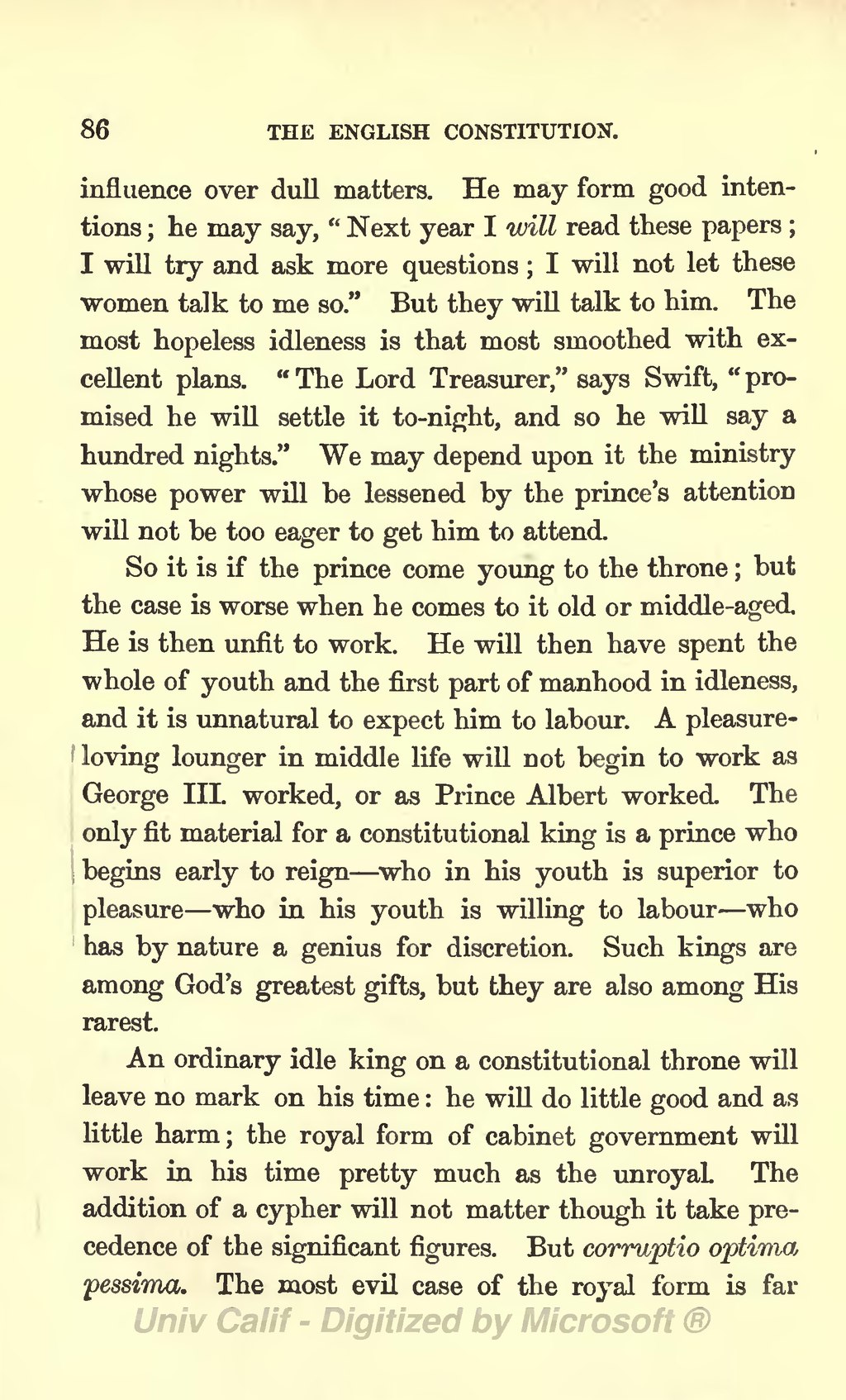influence over dull matters. He may form good intentions; he may say, “Next year I will read these papers; I will try and ask more questions; I will not let these women talk to me so.” But they will talk to him. The most hopeless idleness is that most smoothed with excellent plans. “The Lord Treasurer,” says Swift, “promised he will settle it to-night, and so he will say a hundred nights.” We may depend upon it the ministry whose power will be lessened by the prince’s attention will not be too eager to get him to attend.
So it is if the prince come young to the throne; but the case is worse when he comes to it old or middle-aged. He is then unfit to work. He will then have spent the whole of youth and the first part of manhood in idleness, and it is unnatural to expect him to labour. A pleasure-loving lounger in middle life will not begin to work as George III. worked, or as Prince Albert worked. The only fit material for a constitutional king is a prince who begins early to reign—who in his youth is superior to pleasure—who in his youth is willing to labour—who has by nature a genius for discretion. Such kings are among God’s greatest gifts, but they are also among His rarest.
An ordinary idle king on a constitutional throne will leave no mark on his time: he will do little good and as little harm; the royal form of cabinet government will work in his time pretty much as the unroyal. The addition of a cypher will not matter though it take precedence of the significant figures. But corruptio optima pessima. The most evil case of the royal form is far
